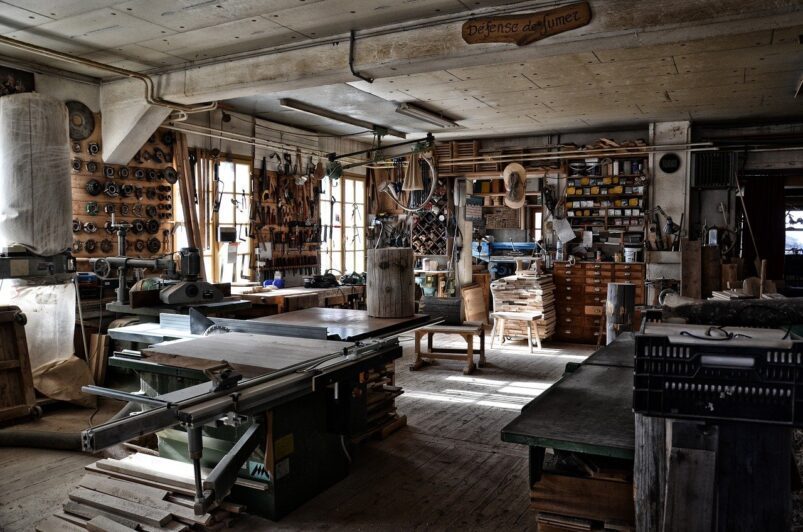Historic crafts are difficult to renew. To restore an ancient roof, to fix a valuable organ, or to conserve original windows requires skills that are not taught at schools or universities. Without these skills, however, monument preservation is impossible.
The master craftspeople who have these skills are in high demand, but they tend to be older people. If they don’t pass their craftsmanship down to younger generations, it will be lost. This would, of course, put much of our heritage at risk. It’s a niche that needs filling.
In Germany, young people can apply for a “Freiwilliges Soziales Jahr” (FSJ), which is a voluntary social year. This time can be spent in sectors that benefits society – one of which is heritage crafts. The Deutsche Stiftung Denkmalschutz (German Foundation for Monument Protection, DSD) is keen to highlight the benefits of spending a year learning heritage crafts as a volunteer, both for young people and for the cultural sector.
Away from the desk
Learning these traditional crafts is far from a desk job. For some young people, however, this is a benefit. Anna Kaufman, a 19 year old who spent her FSJ at a museum doing monument preservation, tells DSD “I don’t want to spend my life sitting in front of a screen.” During her voluntary year, she worked with historical techniques and materials, as well as on the restoration of an 18th century painting.
For the younger generation, manual trades are just uncool
Thomas Büscher, 64, who works at a heritage restoration company
Whilst Anna is not the only young person to spend her FSJ in this field, there are still not many people going into traditional artisanry for careers. “For young people, the bad reputation of manual trades in the preservation of monuments often seems to be more present and studying is more attractive in perspective,” Thomas Büscher, managing director at a restoration company, tells DSD. “For the younger generation, manual trades are just uncool.”
For Anna, and other volunteers in heritage crafts, the benefits are clear. The FSJ led to her getting an apprenticeship in carpentry, which she has been working on since 2021. Now, her time is spent between working with her hands at a company and getting certification at school. Not only is the work fun, but she shares her class with other women.
Craftspeople in demand
For young people, there is strong evidence that volunteering in these crafts translates into skills and employment. Philipp Klais, whose family company has been building organs and harmoniums for 140 years has been training volunteers. Over the past six years, he has had almost no trainees drop out. The skill is not just in demand in Germany, but even abroad.
In modern times, young people are often encouraged to look towards academic universities for employment. In Germany though, they may be better served by more hands-on vocations, as demand for conservation work does not seem to be slowing. For many of the master craftspeople though, time is running out to pass on their trades.
Read more at monumente-online (German).
This news was brought to our attention by European Youth Heritage Ambassador Moritz Richter.

